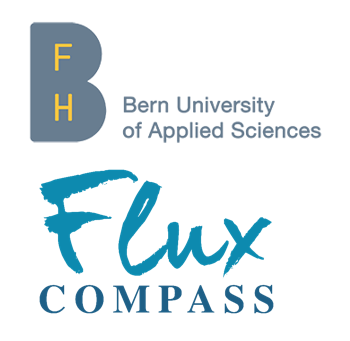
- This event has passed.
Trust across borders for our digital future

This workshop invites you to stop and think about what we, as citizens of the nations of the world, can learn from the COVID-19 crisis and how we want to go forward with respect to our digital future. Together, we will elaborate a message to governments on what we want to keep, leave behind, or do differently.
The ongoing pandemic has shown that connecting, learning and working virtually is a vital alternative to practices based on physical presence. As we work towards a new normal – or rather adapt to ongoing flux, it seems that the pace at which virtual worlds are becoming essential parts of our lives has now massively accelerated.
In governing the digital sphere, governments are adopting strategies that are closely tied to national ambitions over security, economics, and sovereignty. Thus, policies about data and digital sovereignty are highly influenced by geopolitics and geoeconomics, leading rather to more fragmentation, than to a common path with respect to data governance. But what are citizens’ views on how digital governance, and especially data governance, is developing?
This workshop aims to give a voice to those – not usually involved in conversations with the government around this topic, and the opportunity to address a call to action to governments, via the OECD. The discussion will revolve around the three high level questions of the #GovAfterShock event:
- What do we need to leave behind?
- What do we want to keep?
- What should we do differently?
The workshop is jointly organized by the Institute for Public Sector Transformation from the Bern University of Applied Sciences (Switzerland) and the innovation agency Flux Compass (Hong Kong). We are pleased to welcome two speakers: Dr Severine Arsene, Adjunct Assistant Professor, The Chinese University of Hong Kong and Associate Researcher, Médialab, Sciences Po, and Dr Anna Jobin, an associate researcher at the STS Lab of the University auf Lausanne, and an inaugural member of the Swiss Young Academy.
Request to reserve a spot on the event website – this event is aimed at individuals from Switzerland and Hong Kong, including young people, students, professionals and academics, who are not usually privy to policy-making discussions and want to contribute their perspectives and ideas on how to create or co-create trust across borders for our digital future, and make their voices heard by governments.
Write-up of the event
There is a write-up of the event by the event organisers.
Event reflections
These reflections are from the event host.
Summary of the event
We wanted to initiate a discussion to explore ways to enable the digital realm to serve public interests and contribute to action on major global challenges, in light of trends such as rising geopolitical tensions, misinformation driving polarisation, and insufficient protection of individuals and their rights.
What was the most powerful idea, insight or realisation that came out of the event?
There was strong consensus around the need for open governance of the digital realm, comprising
inclusive, participatory processes to co-create public policy; transparency on decisions and their
implications; and extensive efforts to engage those who are not usually privy to these conversations –
including non-internet users. It was also seen as crucial to tackle monopolies and unchecked commercial interests that go against the potential of the digital realm to create shared value for society.
What do we collectively need to keep talking about?
- How might we govern the digital realm beyond national interests, and across country-based infrastructures: do we need a new world order? What could that look like?
- How might we create more time and space for public deliberation and co-creation to ensure shared value creation, rather than the ‘move fast and break things’ approach we see today?
Reflecting back on the event, what key insights or conclusions can be shared about what should be “left behind” beyond the crisis? (ex. What has proven to no longer fit in the current context?)
- Policies that prioritise business interests over citizens’ interests
- Government control and censorship
- Commercial monopolies and behemoths
- Drivers of misinformation
- Silos in thinking and policy-making
- Focus on profit
- Lack of checks and balances
- Country codes and gateways that present barriers to transnational policy.
Reflecting back on the event, what key insights or conclusions can be shared about what should be “kept” beyond the crisis? (ex. What has proven to be important, what were things introduced in crisis response that should be kept after?)
- Democratic approaches (where they exist)
- Freedom of expression (where it exists)
- Regulation for the purpose of protecting citizens
- The capacity for non-digital engagement to inform digital policy
- High levels of access to digital devices
- Efforts to overcome digital exclusion
- Organisations like the OECD to support transnational engagement.
Reflecting back on the event, what key insights or conclusions can be shared about what collectively we should “do differently” beyond the crisis?
We need the digital realm to support public value creation, rather than maximising private interests. This means taking business interests out of the politics governing the space, and vice versa, particularly through open, collaborative, participative governance processes. It also means efforts to track the outcomes of particular developments, and better align the design of the digital realm to public interests. And it requires proactive, inclusive policy-making to govern data use.
We should build international alliances, at transcontinental scale, and enable transborder conversations that are not dominated by private interests.


Recent Comments